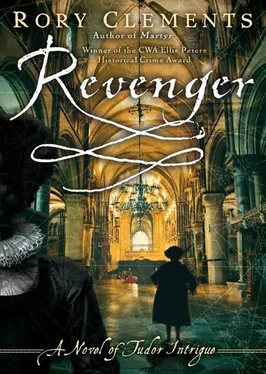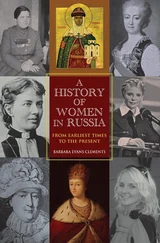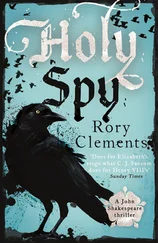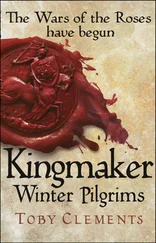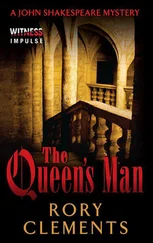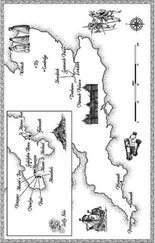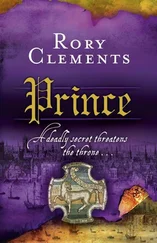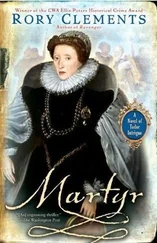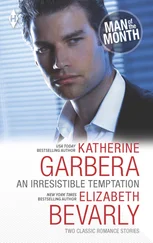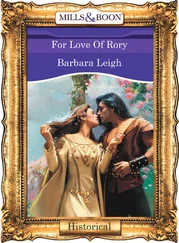Shakespeare shook his head uncertainly. “When was this letter sent?”
“Eighteen months ago. I would bring in McGunn for questioning-but he would tell us nothing and we would merely stir up a hornet’s nest in Essex House. It is said he has the manner of a Hackney cutpurse, but the contacts and riches of a courtier.”
“Yes, I would say that is the measure of the man.”
For the first time, the strain showed in Cecil’s face. His brow was tense and the corners of his neat mouth twitched. “Is he working for Philip or for Essex, or both? Or neither?”
“Perhaps he offers them each different things. If he funds Essex’s ambitions, he will certainly help Philip, for his actions will destabilize the English realm.”
“That is possible. Perhaps he sees it as a stepping-stone to removing the English from Ireland. Anyway, we must take him seriously. Find out what you can. And I say again, fetch me the proof I need that Essex is wooing Arbella, for only that will give us the power to stop him in his tracks. Is that clear?”
“Yes, Sir Robert. There is one other thing I must mention in that regard. The Countess of Essex has some strange sickness-of body and mind.”
“Poison?”
“Yes. I am certain of it.”
Cecil nodded. “I am not surprised, Mr. Shakespeare. I will ensure she is protected. Find out what you can. Take what you know of her condition to one well versed in such things and report to me. Here, this is for you.” Cecil handed him a book, The Profitable Art of Gardening . “This is a fine volume. I am sure you will find it excellent reading one day when you have more leisure. But for the moment, I am giving it to you because I do not want you coming to me again; it is too dangerous. Use this as a cipher book. Just mark the page, the line, and the number of each letter on your paper, and I will be able to find the corresponding letter in my own, identical copy of the book. Every fourth letter should be a null. It is a simple cipher, but only breakable if the code-breaker has the book. Keep it safe. Do you have a trustworthy servant to bring me messages, one that can move about unseen and make himself disappear when followed?”
“I have a servant called Jack Butler. I trust him.”
“Good. I shall be at Greenwich until the Queen’s progress begins. Be strong, Mr. Shakespeare. I am depending on you.”
Shakespeare put up his hand before he could be dismissed. “Might I talk of one more matter, Sir Robert?”
“Be quick. I have a Council meeting to attend.”
“It is the question of Father Robert Southwell.”
Cecil’s mouth turned down in displeasure. “You can do nothing to help him. He knew when he arrived in England as a priest that he was committing treason. He has brought this on himself and will perish for his stubborn foolishness.”
“But in the meantime, Sir Robert, must he be held in the private strong-room of Richard Topcliffe, where he is subject to wanton and un-Christian cruelty? If he were to be removed to the Tower, his examination would at least be scrutinized.”
Cecil’s face displayed no kindness, no compassion. “This was your undoing before, Mr. Shakespeare. Learn from that and keep away from it now. I know you are not a Papist, but you are too lenient with those like Southwell who would subvert the state.” His eyes lightened a little. “I am doing what I can. The Queen curses Topcliffe as a fool for his unsubtle examinings, so I have already had Father Southwell removed to the Gatehouse Prison. For what it is worth, I have met him and think him an impressive man. He is my cousin, you know. There is a torture which it is not possible for a man to bear, hanging against the wall. And yet I have seen him hanging by his hands in the iron gyves and no one is able to drag one word from his mouth. No wonder the Papists trust these Jesuits with their lives.”
“Thank you, Sir Robert.”
“But Mr. Shakespeare, I beg you, take no more interest in Southwell’s fate. It is out of all our hands now-and crossing Topcliffe can do you and yours no good. No good at all. Even with my protection.”

J OSHUA PEACE STOOD BACK FROM THE TWO BODIES laid out before him on the slab of stone in the crypt beneath St. Paul’s. Their flesh was bloated and ruptured and gnawed by animals, yet he could see that they had been a handsome, well-formed couple. Even for a man as used to death as he was, it was sad to see two young human beings come to this. On the floor nearby stood an earthenware flagon, which had been found beside their bodies on the edge of a stream in the woods.
The stench of moldering flesh would have overpowered a lesser man. Yet as Searcher of the Dead, Peace was accustomed to the smell and went about his business, examining the bodies, looking for curious-shaped cuts that could have been made by a blade, examining their mouths for the telltale signs of burned lips or bitten tongues, sniffing them to determine the date of death. From years of experience, he was able to tell whether they were dead a day, a week, or a fortnight, depending on the season of the year.
Even in the heat of this blistering day, it was cool down here beneath the great cathedral. Peace worked alone and in silence, his soft shoes padding silently across the stone floor. He heard the creak of the oaken door being pushed open and turned to see who was there. He smiled in welcome.
“John Shakespeare. Well, well.”
Shakespeare gagged at the smell and covered his mouth and nose with his hand.
“Why, John, I have not seen you in a year or more. Do you not say good-day? How goes the world of learning?”
Shakespeare could scarcely breathe. He backed out of the room.
“Come on,” Peace said, laughing. “Let us leave these two unfortunate souls and go outside. I don’t want you bringing up your luncheon over my floor.”
Peace covered the bodies with their winding sheets, then took off his surgeon’s apron, hung it on a hook, and together they wandered over to the Three Tuns for a tankard of ale.
“So what brings you here, good friend John?” Peace was a little older than Shakespeare. His head was almost devoid of hair, save for a rim of fine brown locks along the sides and back. His face was questioning and full of wit. Amusement played around his eyes.
Shakespeare gulped in the fresh, warm air, trying to rid his lungs and nostrils of the foul stink from the crypt. “Why, the thought of a pint of ale with an old copesmate, Joshua,” he said.
“What else?”
“What else, indeed. I know you better than that, John Shakespeare.”
“Let us drink first to clear our throats and cleanse our souls.”
They settled down in a booth, away from the noisy chatter of lawyers and clerics and booksellers doing deals. As a taproom wench brought them ale, Shakespeare came to the point. “It may not be within your reckoning, but I thought to try you anyway. And if you cannot help, perhaps you might point me toward one who can.”
“I will do my best.”
“Would you be able to tell, Joshua, whether someone was being poisoned?”
“If you were to tell me that a man was doubled up in pain and convulsions beyond enduring, and that he was puking blood the color of dark rusty filings of iron, and shitting a flood, then yes, I could tell you that he might well be suffering poisoning, especially arsenic. But it could just as well be caused by some miasma in the air, or by bad food or water-particularly if others were similarly afflicted. A foulness or blockage in the bowel could cause similar effects to poisoning-the pain, the vomiting, the wish for death.”
Читать дальше
